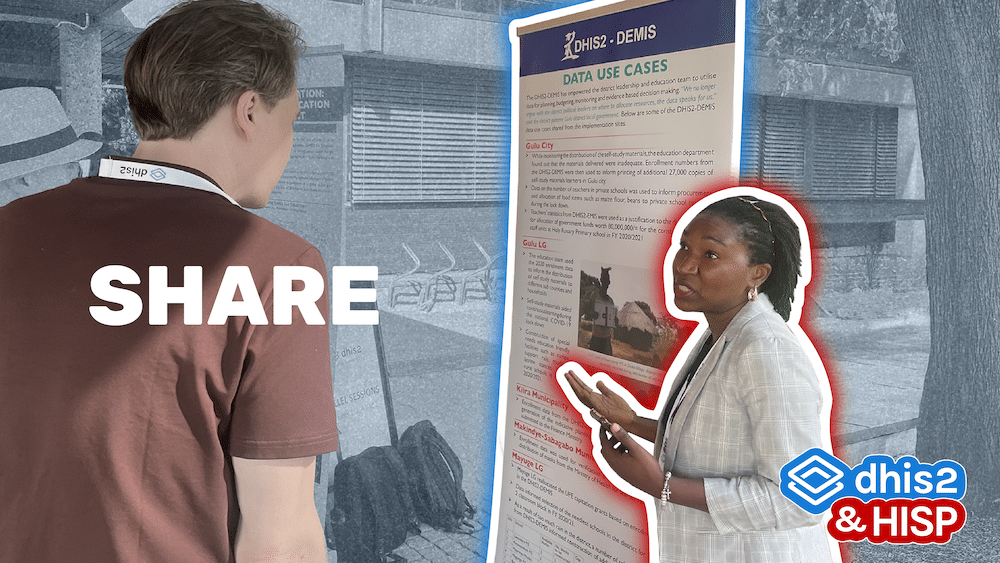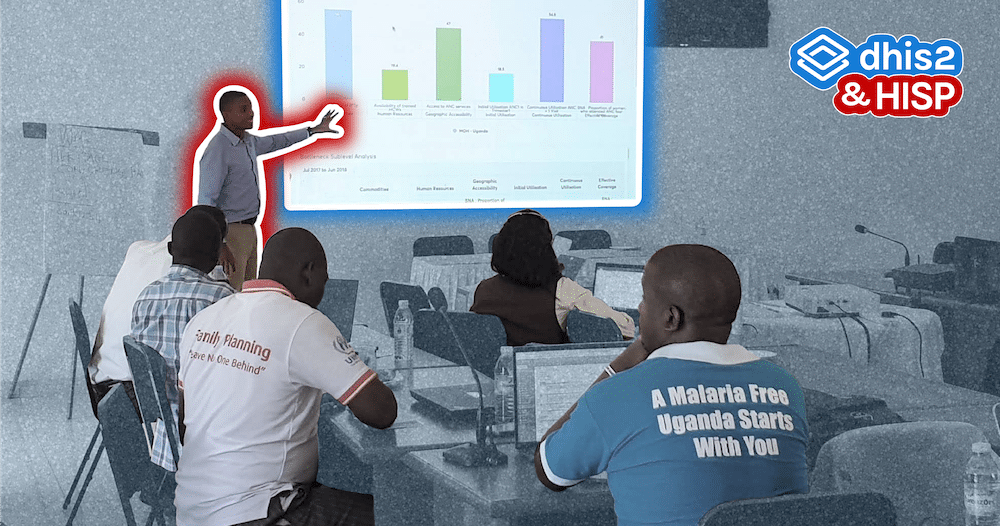
DHIS2 & HISP
Supporting innovative, sustainable, and locally-owned information systems worldwide.

Supporting innovative, sustainable, and locally-owned information systems worldwide.
DHIS2 is well known around the world as a free and open-source software platform supporting data-driven decisions in more than 100 countries. However, fewer people have heard of HISP, a global network of information system experts supporting digitalization and data use worldwide, through local HISP groups in Africa, Asia, the Middle East and the Americas, plus the HISP Centre at the University of Oslo (UiO). Since 1994, HISP has worked with local stakeholders in low- and middle-income countries on design, capacity building and institutionalization of digital information systems in collaboration, supporting lasting change in the form of strengthened access to and routine use of data to drive decision making in public health programs and beyond. As a key part of this work – with the ongoing support of our partners – HISP develops, maintains, and implements the DHIS2 platform as a Digital Public Good.
Learn more:
HISP began in 1994 as the Health Information Systems Programme, a collaborative action research project between the University of Oslo (UiO) and the University of the Western Cape to support digitalization of decentralized health system management in post-Apartheid South Africa. That project ultimately resulted in the first version of the District Health Information Software (DHIS), which later evolved into DHIS2, which HISP grew from a small research group to a global network. Action research remains an integral part of the HISP approach. HISP groups work with local stakeholders to explore real-world problems and develop solutions in a local context, generating knowledge about what elements of the solution are contextual vs. generic, and transforming the generic elements into frameworks that can be shared globally at the same time as they inspire local innovation and adaptation in other countries. This solid foundation in research-based approaches helps ensure that DHIS2 is adaptable and responsive to a variety of local needs and contexts.
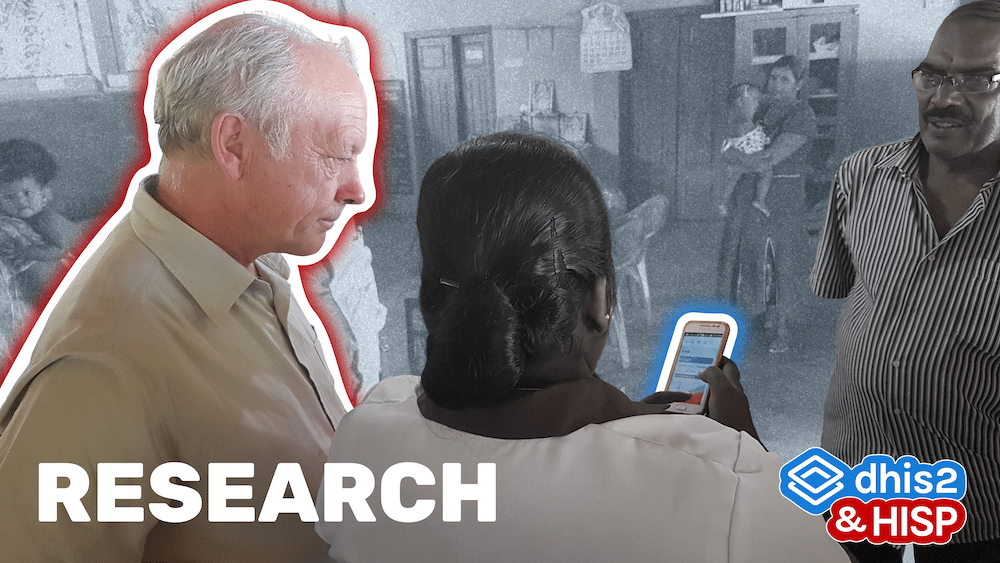
The design of the DHIS2 software platform, and of individual DHIS2 implementations, is directly informed by the work of HISP groups with local stakeholders. The DHIS2 engineering team at HISP UiO plans new features and improvements through a transparent roadmap prioritization process that includes input from all groups in the global HISP network, and also engages in field research together with local HISP groups to collect input and feedback directly from DHIS2 users. When configuring or updating local DHIS2 systems, one of the most significant steps carried out by HISP groups is in-depth engagement with local stakeholders to assess their information system needs and explore possible solutions using the DHIS2 platform, as well as potentially other digital tools, custom applications, and integrations. Together, these locally-grounded HISP approaches to DHIS2 design result in systems that meet local needs.
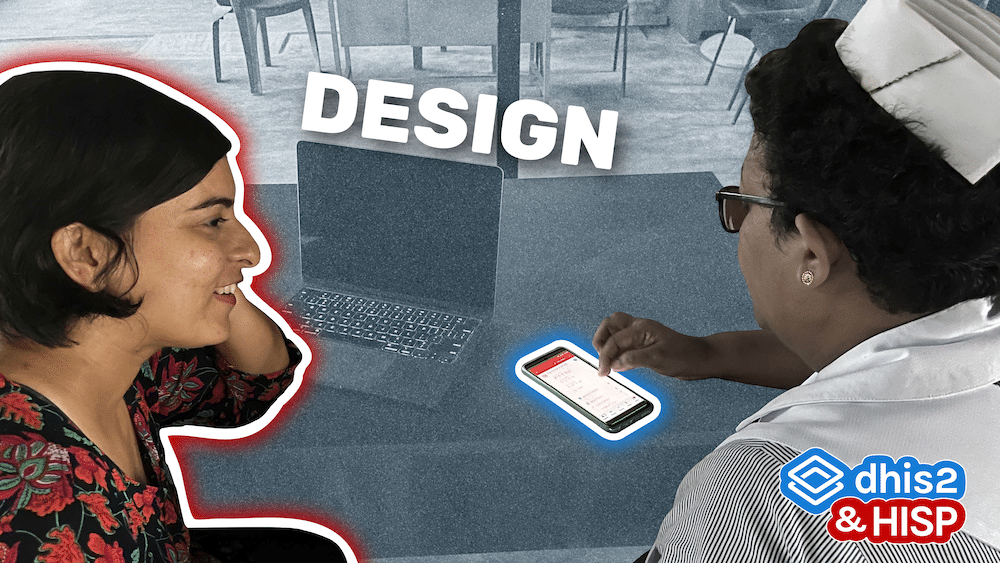
The DHIS2 platform is developed by a professional software engineering team coordinated by HISP UiO, with developers working from more than 20 countries in Europe, Asia, Africa, and the Americas. Software development is a foundational, ongoing activity to continue to maintain the stability, performance and security of DHIS2 in the face of an ever-growing user base and increasing performance demands, and to expand the platform functionality to meet new country and partner requirements in health systems, and to adapt DHIS2 to new new domains and use cases – such as education, logistics and climate and health. Thanks to the ongoing financial support from our global partners, HISP UiO is able to develop and maintain DHIS2 as a free and open-source Digital Public Good, and make new features and improvements available immediately for all users of DHIS2 worldwide.
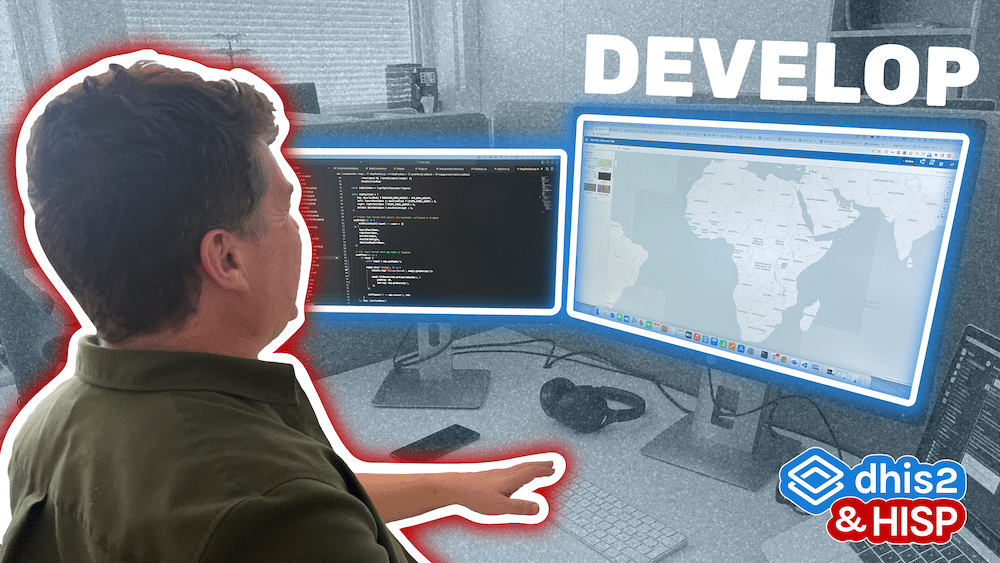
The HISP approach to implementation support centers on strengthening local capacity with the end goal of enabling real local ownership of information systems. HISP UiO coordinates global work on DHIS2 capacity building – including designing DHIS2 Academy curricula, documentation and other informational and training materials, and maintaining the DHIS2 Online Academy. At the same time, HISP groups build and reinforce country capacity by providing regional DHIS2 Academy and in-country training, including helping capacitate DHIS2 users at the district level and below through the training-of-trainers model. HISP groups also offer hands-on learning to Ministry of Health DHIS2 teams through an apprenticeship model, instead of simply providing technical support. Collectively, HISP has trained more than 100,000 people around the world on DHIS2.

In addition to training, HISP groups also support local DHIS2 systems through direct technical assistance. This includes DHIS2 implementation and maintenance, local customization and configuration, system upgrades, custom application development, and integration with other data sources and systems. While the goal of HISP is to empower national DHIS2 teams to take full ownership of their DHIS2 systems, HISP groups remain on call to provide advanced support and response to emergent needs, helping countries rapidly adapt their existing DHIS2 systems to meet new challenges, such as in the case of the COVID pandemic. HISP groups also function as digitalization partners for government stakeholders, and can help support other open-source software platforms as part of a holistic information system infrastructure. The HISP groups’ sustained engagement as long-term partners of the Ministry of Health helps move countries along the maturity path: Countries using DHIS2 are not simply deploying DHIS2 as a product, but building local access to data and the ability to use it.
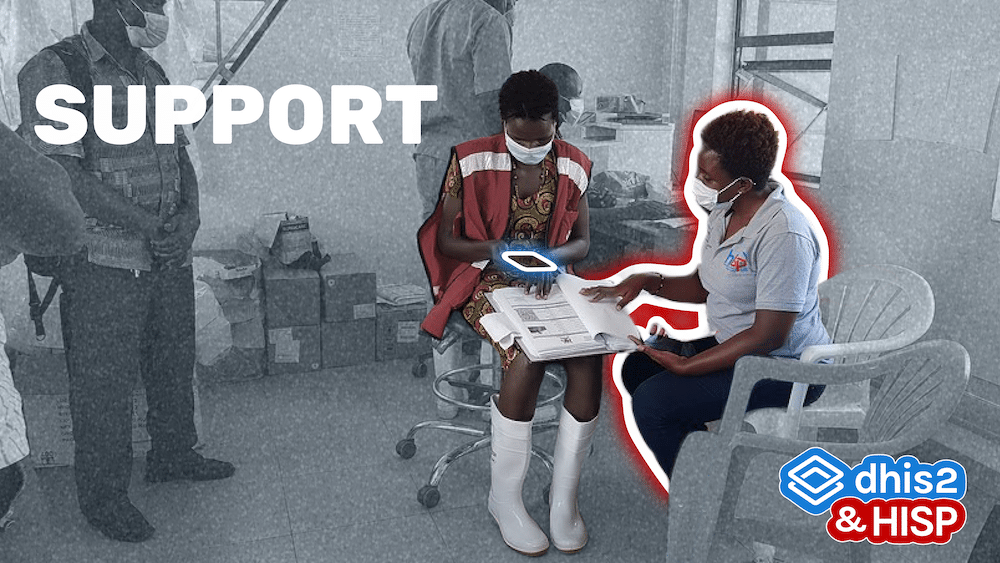
While the HISP approach is heavily tied to the local needs of country-level connections, a key result of our exploration of real-world problems and developing solutions in a local context is transforming the generic elements of those solutions into globally shared tools, and facilitating local innovation and adaptation with those tools in other countries, including the sharing of locally developed DHIS2 applications and design approaches. HISP facilitates the sharing of DHIS2 innovations and best practices in a number of ways. Custom DHIS2 applications can be shared through the DHIS2 App Hub, a platform maintained by HISP UiO that makes these innovative apps available for use worldwide. HISP UiO coordinates the DHIS2 Community of Practice, an online forum with more than 10,000 members where DHIS2 experts from around the world share experiences and best practices. DHIS2 community members can also connect and share in person through regional DHIS2 Academies and conferences hosted by HISP groups, and as the DHIS2 Annual Conference hosted by HISP UiO, which offers an opportunity to share local work with a global audience.
